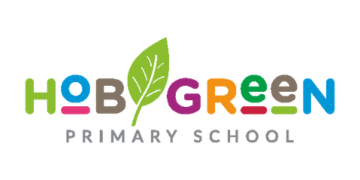Rebuilding a culture of learning after lockdown will take intentional action, writes Peps Mccrea. Here are four key considerations for getting it right
The timeline is unclear, but lockdown will eventually end. The challenges it has brought will dissipate as we return to life as before, but this second transition will be far from carefree and easy. The challenges of lockdown will temporarily be replaced by the challenges of the big return, and schools that are prepared for that will fare best.
At heart, the biggest challenge facing us is the sombre but likely prediction that the learning gap will be further entrenched by the time schools reopen. Teachers and leaders will have to do more than ever before to help those pupils who need them most. Fortunately, schools have all the tools they need to make a great job of it. In contrast to the lockdown period, where digital technology has been a boon, the big return will need only the most basic ingredients: effective teaching, strong leadership, and motivated pupils.
The evidence is clear that these ingredients are our best bet when it comes to making the biggest difference, even more so for disadvantaged pupils. Pupils on the receiving end of great teaching make four times more progress that those receiving poor teaching. By comparison, looking to technology for a boost in this setting has the potential to be more of a distraction than an aid.
Closing the gap through effective teaching and leadership entails finding out what pupils know and don’t know, making strong curriculum decisions about what to prioritise in lessons, teaching in ways that are supported by the best available evidence, and (re-)establishing a strong culture of learning across the school.
Pupils will have had a wide range of experiences during lockdown
This latter challenge is the one schools could easily overlook, and that could turn out to be a costly error. The extended lockdown period will have chipped away at motivation, habits, and feelings of belonging. When pupils return to school, all these things will have to be re-established, and quickly, if the effects of good teaching are to make their mark.
The good news is that teachers and leaders know how to do a lot of this stuff. Establishing routines, norms and values are the bread and butter of great schooling. However, these often happen unconsciously and the risk of relying on intuition is that we fail to recognise the need to take intentional action to ensure it happens.
Purposefully establishing an effective culture for learning entails four key elements. First, securing early experiences of success for pupils, particularly the most vulnerable. Success breeds feelings of self-efficacy and increases the chances that pupils will be more motivated to learn in similar future situations.
Second, establishing simple, easy-to-follow and familiar routines. These help pupils to think less about the how of their learning, which enables them to think more about the what of their learning. What pupils think about is what they end up learning.
Third, communicating (and overcommunicating) what is important and what is expected. Creating a compelling purpose that the whole school community can rally around and regularly highlighting examples of behaviours that help achieve this purpose will draw pupils towards these values and norms and help them settle into an effective mindset for learning.
Lastly, building a strong sense of belonging. Pupils will have had a wide range of experiences during lockdown; school should be a place where they feel immediately welcome, experience togetherness and see the critical role they play.
The consequences of lockdown are already sobering, yet many have also experienced some unforeseen form of silver lining. From spending more time with friends or family, to getting more exercise, they have realised that this situation presents not just challenges but opportunities.
The same may be true for the big return. Whilst it will no doubt throw us many challenges, it could also be an opportunity to take an even more intentional approach to establishing an effective culture for learning.
After all, going back to the ‘old normal’ may be comforting, but it wasn’t perfect. In some aspects at least this is our chance to progress to a scenario that’s even better than before.







Your thoughts